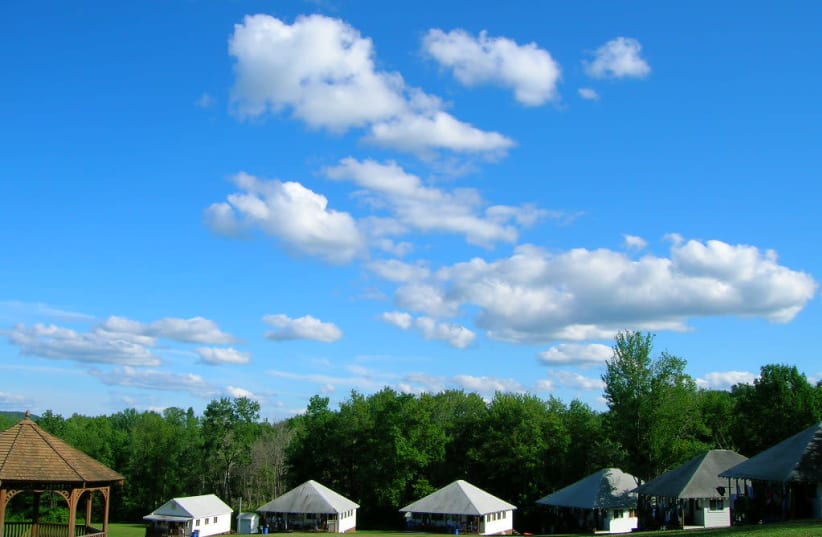Summer camps are among the most beloved Jewish institutions in North America. Around 80,000 campers across denominations attend an overnight program every summer, according to a report by the Foundation for Jewish Camp, which has a network of 166 camps. With schools shut down, children trapped inside the houses, and the summer fast approaching, whether it is going to be possible for camp to take place is rapidly becoming one of the most pressing issues about the coronavirus outbreak.
“All of our directors are working on three parallel paths,” Rabbi Mitchell Cohen, Director of the National Ramah Commission, told The Jerusalem Post. “One is providing online content to our campers, such as concerts, art and sports classes in this period. Another track consists of trying to anticipate all the ways we might find ourselves compelled to modify our programs this summer, from delaying opening to a lower number of participants, to which medical testing we might need to perform. The third area is what happens if there is actually no camp this summer, which means that we have to return all the tuition money to parents and how do we survive the financial loss.”
The camping arm of the Conservative movement, Ramah runs ten overnight camps and several day camps, as well as a program for teens in Israel with some 12,000 people participating every year.
A few weeks before summer programs traditionally start, their approach seems to be shared by organizations across the spectrum.
“As we try to prepare for whatever the summer may look like, we recognize that the unknowns of summer amid the COVID-19 outbreak and the possible restrictions from public health concerns and government agencies are still to be determined,” Aaron Selkow, deputy director for Union of Reform Judaism Camps, which runs some 18 camps, wrote on the URJ website, expressing the hope that camp will be able to take place.
“As of right now, we have no intention of cancelling any of our summer programs but a final decision will be made within the first week of June,” reads the update on COVID-19 on the website of the Orthodox Zionist Camp Massad in Winnipeg Canada.
“At this time Camp Chi, JCC Chicago’s resident camp, and our nine Apachi Day Camps are prepared to operate for the full summer as planned. Working under the advisement and recommendation of State and County Departments of Public Health, the Centers for Disease Control, and in coordination with the American Camp Association and JCC Association, we will determine the ability to safely and successfully run camp this summer,” JCC Chicago Director, Program Marketing and Communications Elizabeth Abrams told the Post. “The Apachi and Camp Chi teams are incredibly creative and resourceful and have developed plans for everything from an extended to partial summer program.”
As mentioned by Cohen, many camps are offering their participants an opportunity to virtually connect with their campmates and group leaders for community activities.
Enrollment meanwhile continues, with most programs committing, as Ramah does, to offer a full refund in case camp ends up being canceled.
If Cohen suggests that if the summer programs do indeed take place they might be among the most attended ever, considering the deep need for children to spend time outdoors and with friends, the question of financial survival if this does not happen is one of the most pressing.
According to the FJC report, tuition represents by far the largest component in camp revenues – 76% on average – with average gross revenue of over $2.1 million per year.
“We have been doing a lot of work with major foundations supporting Jewish life and our key donors, as well as cutting spending as much as we could,” the rabbi pointed out, adding that with about a 30-day notice, they will be able to make sure that the programs can run.
Cohen further said that in monitoring the situations and making arrangements he keeps in constant communication not only with the whole Ramah network, but with leaders of other camps as well, to make sure that everyone is on the same page.
He highlighted that some medical experts have suggested that such young and isolated communities could represent one of the safest environments from the virus, because even assuming that someone was infected, it would be unlikely that anyone would suffer severe symptoms, but caution is still needed.
In a document describing the Framework for Reopening America by the US Federal Emergency Management Agency and the Centers for Disease Control and Prevention obtained by The Washington Post, the reopening of summer camps, together with schools and daycares, is explicitly mentioned as a priority to allow the country to go back to work.
The report added that the plan has been discussed with the White House itself as well as other governmental agencies which have been working on similar strategies.
May 1 could mark the beginning of the partial lifting of the restrictions, at least in the areas less affected by the virus. Some further information on the destiny of 2020 summer camps could be available in a couple of weeks.
“These are unprecedented times, people are losing jobs, some are getting sick, some are dying. We have to keep summer camps in perspective. They are a wonderful part of life but not the most important thing right now. On the other hand, for families whose children look at camp as this incredible highlight experience in their lives, now more than ever it is important that we do everything possible to open. We are not going to cancel if we don’t have too,” Cohen concluded.
